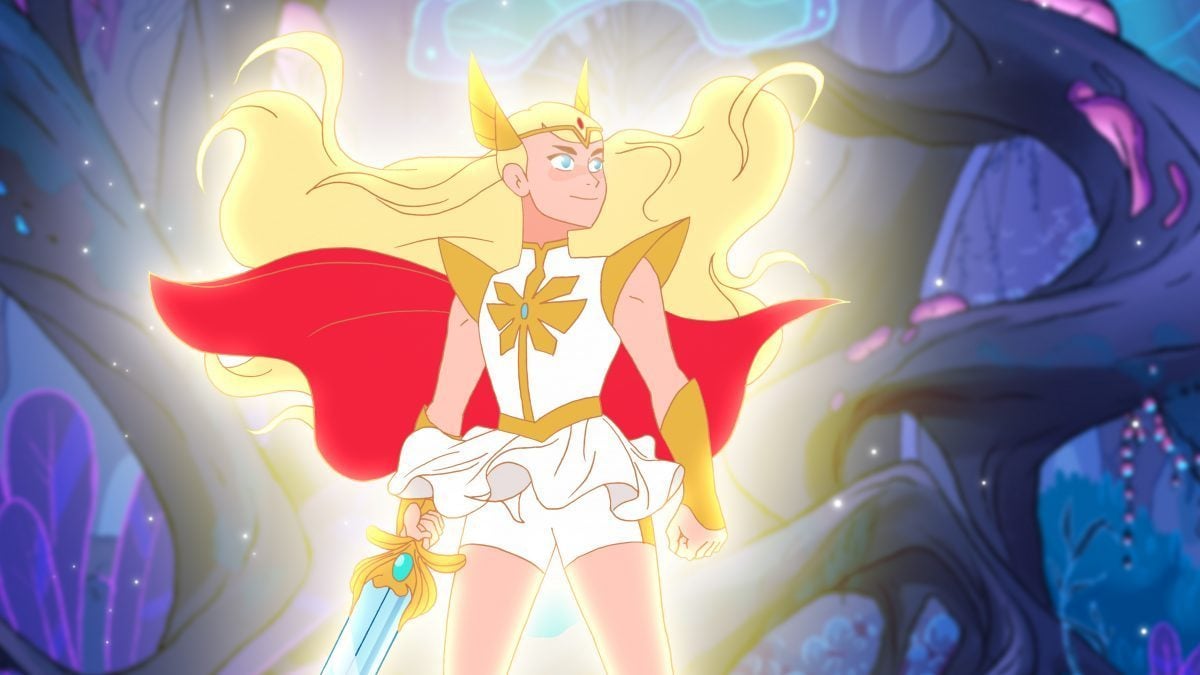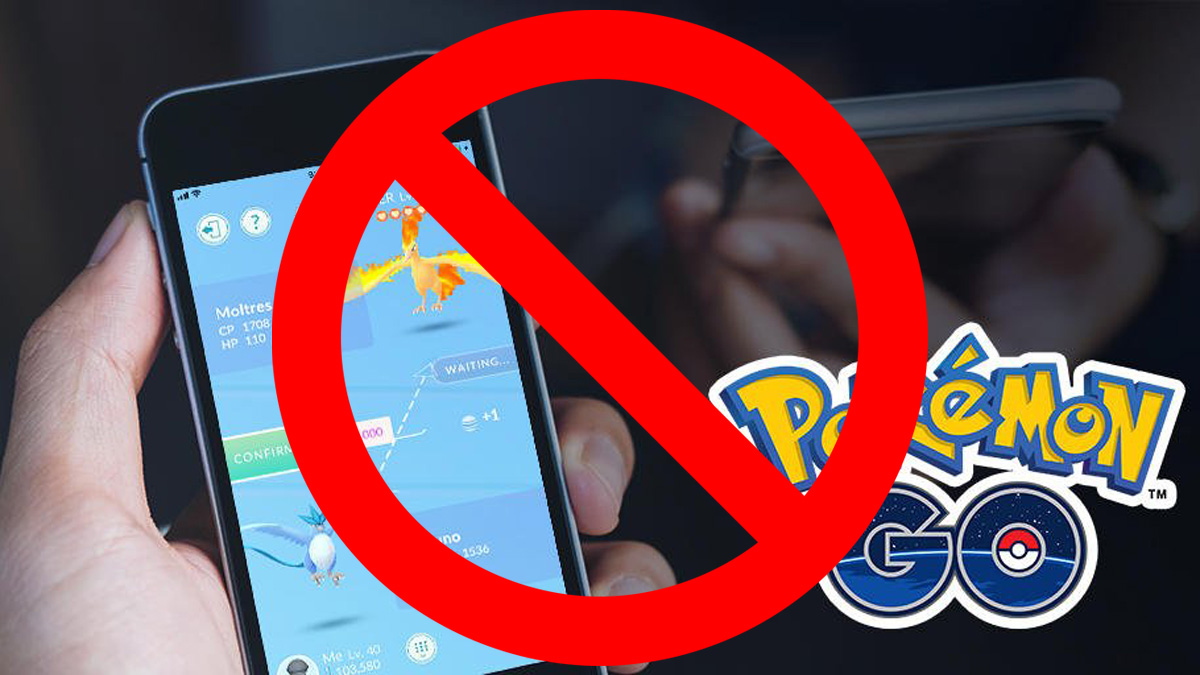Despite no longer being a teacher, I often find myself approaching parenting in the way I approached my students. While watching She-Ra Season 4 with my kiddo, I had the realization that while books often come with “Discussion Guides” at the end, television shows rarely do.
When interviewing Noelle Stevenson and the She-Ra cast at NYCC, one of the other interviewers thanked Stevenson for giving him a show that helped him start conversations with his 10-year-old daughter. With that in mind, I felt that maybe offering parents a She-Ra Season 4 discussion guide would be helpful.
Our Princesses Are Growing Up
Between Glimmer’s new hairdo and Catra’s new look, our favorite princesses are evolving from tweens to teens.
Up until Season 4, the main characters react to adults’ directions and influence. However, Season 4 provides us a different set of underlying influences. For the first time, our characters need to be their own driving forces. They must create plans, implement them, and live with the outcomes.
Season 4 gives viewers – adult and youth – a common language for navigating the identity formation process. No longer able to turn to the guiding adults in their lives, our characters must make decisions and live with the realizations that they are responsible for the outcomes.
How She-Ra Season 4 Navigates Growth: Discussion
Season 4’s theme is very clearly, “Who Am I?” Whether it’s Glimmer accepting her new role without Angela, or Adora adjusting to how she’s changed since leaving the Horde, Season 4 focuses on how identities change and evolve.
Just as each character needs to learn how to be responsible for their actions, each character now needs to make decisions about who they want to be in light of the fallout from those choices. Whether it’s Scorpia’s complex, one-sided relationship with Catra or the evolution of Glimmer’s powers, each character is navigating a “puberty” of sorts.
The Best Friend Squad struggles to maintain its group cohesion, much as young people moving from middle school to high school do. As the characters grow and evolve, so must their relationships with each other. Just as friendships in real life evolve and are tested, so are the bonds between the best friends.
She-Ra‘s Season 4’s Double Trouble: “We all wear costumes.”
When Dreamworks announced the show’s new nonbinary character, voiced by Jacob Tobia, the queer-positive show “doubled” down on its commitment to providing children positive representation.
Prepare for Trouble! @jacobtobia is here to announce that they’re joining the new season of She-Ra and the Princesses of Power as the shape shifting mercenary Double Trouble! @DreamWorksSheRa pic.twitter.com/IXhue8PCDp
— Netflix Geeked (@NetflixGeeked) October 21, 2019
One of Double Trouble’s first lines, “we all wear costumes,” hints at the particular struggle nobinary people face. In a 2018 Teen Vogue article, author Weiss explains, “many people seem to believe you need an androgynous style to be non-binary, creating the assumption that I and other non-binary people who wear women’s clothes must be women.”
In many ways, the “costumes” we all wear are those related to how we present ourselves in public. Children, tweens, and teens, in particular, often feel the need to hide their true selves and meet social norms.
Double Trouble, however, presents a character with a clear nonbinary identity. Moreover, in keeping with Stevenson’s desire to create a fantastical world where people can be themselves, Catra never questions Double Trouble’s pronoun “they.”
A “Parents’ Discussion Guide” for She-Ra Season 4
Dealing with Friendships
- Each character deals with friendshp, what it means to them, and how their friendships change as their roles changes. Who’s reaction is the best? the worst? Why do you feel that way?
- What advice would you give each character about how they should have handled the changes?
- How do you feel about the challenges the Best Friend Squad faces in Season 4?
- Have you ever had an argument with a friend that made you feel the way they feel?
- How do you feel about the way the Best Friend Squad handles arguments?
- How would you have handled the conflict?
- What suggestions would you have made to the characters?
- Which of the characters were you more like in that argument?
- How do you think Bow feels about Glimmer and She-Ra’s friendship in Season 4?
- How do you think Bow feels about his friendship with both Glimmer and She-Ra in Season 4?
- Have you ever felt like Bow? Or do you feel more like She-Ra or Glimmer, and why?
- How do you feel about the changing relationship between Catra and Scorpia?
- Have you ever felt like Scorpia?
- How did you react and what did you do when you felt like that?
- Do you think Scorpia made the right decision? Why?
- Have you ever been in a situation like Scorpia?
- What did you do?
- Do you wish you’d done things differently?
Identity, Destiny, and Growth
- Which character is the best leader? the worst? Why do you feel that way?
- Catra, Glimmer, and Adora all deal with new responsibilities. How well does each one handle it?
- Who handles it best? Worst? Why?
- Whose choices are most like the ones you make?
- What advice would you give each character?
- Which character have you normally identified with and why?
- Do you feel that Season 4 changed the character with whom you identify?
- If not, why do you feel that way?
- If so, what choices did the characters make that made you feel that way?
- Do you believe in destiny? or do you think people can choose their own path?
- What are the similarities and differences between Glimmer’s and Adora’s “destinies”?
- Why do you think Mara fights against the idea of “destiny”?
- How does she handle it?
Dealing with Stressful Situations
- Why do you think Catra acts the way she does?
- Have you ever felt like Catra?
- How did you respond to the situation?
- Mermista and Glimmer handle stressful situations very differently. Who do you think handles it better?
- Who do you think you’re more like when it comes to handling problems?
Talking About Gender and Sexuality
- What did you think of Double Trouble?
- Why do you think Catra calls Double Trouble “they”?
- Why do you think that pronoun use is important?
- How did you feel Double Trouble’s alter-identity?
- What stereotypes is Double Trouble using?
- Why do you think the writers decided to have Double Trouble shift between identities instead of choosing one and staying that way?
- What did you think about Spinnerella and Netossa’s relationship?
- Do you think they’re committed to each other? What makes you feel that way?
- Why do you think these characters are important?


